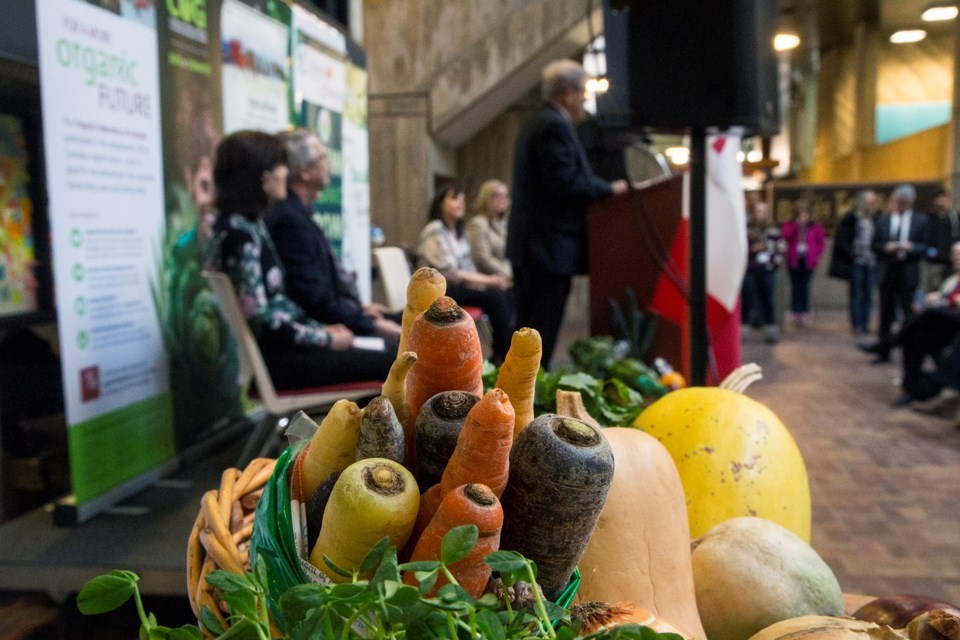Why go organic? People can find the answer at the Guelph Organic Conference at the University of Guelph from Jan. 24 – 27.
Known as Canada’s longest-running organic event, this year’s theme is Bring Organic Home: Community in a Changing Climate, which will highlight the benefits of growing food locally.
“There will be a range of trade show exhibitors, workshops, and speakers. It’s for everyone, but primarily for anyone interested in organic agriculture, whether that be farm operators, industry members or just consumers. Anyone can attend and learn about organic agriculture”, said Organic Council of Ontario (OCO) communications coordinator Stephanie Brunet.
“You can also find out about market gardening and small-scale urban farming. There’s something for everyone, depending on what you are interested in.”
Brunet said organic farming is widely considered to be a far more sustainable alternative when it comes to food production, with a new drive to help fight climate change.
“The conference will definitely highlight local farm to fork production. It’s important to support your local economy and your local farmers,” Brunet said.
Organic foods can not only protect your families' health but can also help protect the environment, Brunet said.
“This can help fight climate change, so you don’t have gas emissions from imports and exports. You don’t have to pay as much as you would for importing and exporting, so there’s a lot less green gas emissions involved,” Brunet said.
She said producing food without chemical pesticides can help to preserve soil and keep farmland healthy.
“It’s much better for the environment to grow organically because it leaves the soil healthier and does not deplete the soil of nutrients. And you don’t release any synthetic chemicals into the nearby water ways, through pesticides,” Brunet said.
No registration is required for the conference 'trade show' which will run from 9 a.m. until 5 p.m. on Jan 26th - 27th.
“People can just come out to the University Centre, walk around and check out the booths. If they want to attend sessions, they can register at the conference or they can preregister online,” Brunet said.
The Organic Council of Ontario, (OCO) an advocacy organization for organics, is set to host the event this year.
The conference was first launched in 1982 by a small group of graduate students with an interest in growing organic food.
In 1992, it was taken over by a coalition of non-profits with support from government staff. And in 2003, it was formally incorporated under the name of Organic Food Conferences of Canada.
Over the years, the Guelph Organic Conference has included many non-profits and certification bodies in its “official sponsor” list who have been critical in helping to make the conference an annual success.
In 2022, the Organic Council of Ontario became the primary organizer.
Over the decades, Tomas Nimmo from the University of Guelph, was the conference’s key organizer and passionate advocate for organics and the conference.
"Tomas organized it single-handedly, and he has now passed on the torch to us," Brunet said.
“We are excited to be involved in it this way. We have always taken part. We’ve sponsored the conference and held workshops. But to organize the event, this is a real honour because it does have such a legacy.”
With over 1,000 members, the OCO includes farmers, processors, businesses, and supporters with a vision to develop a thriving, accessible organic food system that nourishes Ontario communities, and promotes healthier ecosystems and economies.
For more information about the conference, visit here.



